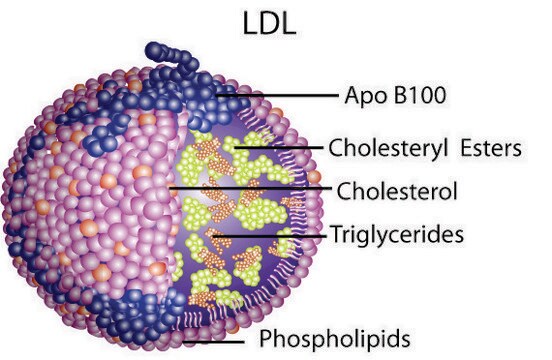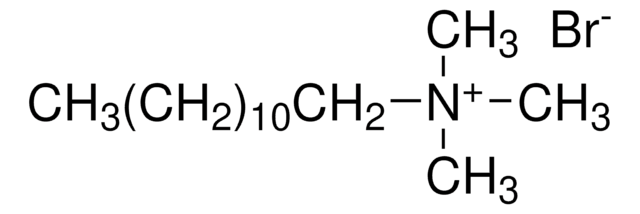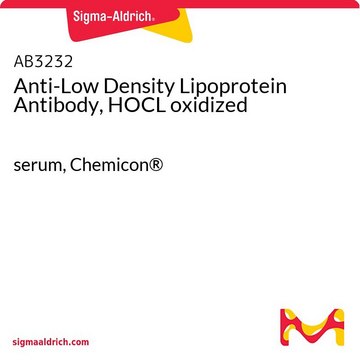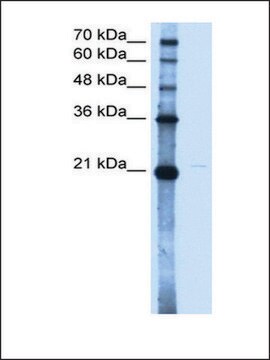L7914
Lipoprotein, low density from human plasma
≥95% (SDS-PAGE), solution
Synonym(s):
β-Lipoprotein, LDL, Low density lipoprotein
About This Item
Recommended Products
biological source
human plasma
Quality Level
Assay
≥95% (SDS-PAGE)
form
solution
functional group
ester
phospholipid
shipped in
wet ice
storage temp.
2-8°C
Gene Information
human ... APOB(338) , APOC2(344) , APOE(348)
Looking for similar products? Visit Product Comparison Guide
Application
- as an additive in cholesterol-free RPMI media
- as a component in buffer to perform an assay for measuring lipid peroxidation
- to stimulate hepatic macrophages
- as a plasma protein to determine pazopanib unbound fraction (fu%) by equilibrium dialysis
Biochem/physiol Actions
Caution
Physical properties
Physical form
Other Notes
Disclaimer
Storage Class Code
10 - Combustible liquids
WGK
WGK 3
Flash Point(F)
Not applicable
Flash Point(C)
Not applicable
Certificates of Analysis (COA)
Search for Certificates of Analysis (COA) by entering the products Lot/Batch Number. Lot and Batch Numbers can be found on a product’s label following the words ‘Lot’ or ‘Batch’.
Already Own This Product?
Find documentation for the products that you have recently purchased in the Document Library.
Customers Also Viewed
Articles
Since cholesterol is a water-insoluble molecule it must be packaged for transport within the plasma. The particles that package cholesterol, cholesteryl esters, and triglycerides for transport, are called lipoproteins.
The potential for the prevention and treatment of cardiovascular disease through increased dietary intake of omega-3 (w-3) fish oils is not a recent scientific discovery.
Our team of scientists has experience in all areas of research including Life Science, Material Science, Chemical Synthesis, Chromatography, Analytical and many others.
Contact Technical Service










